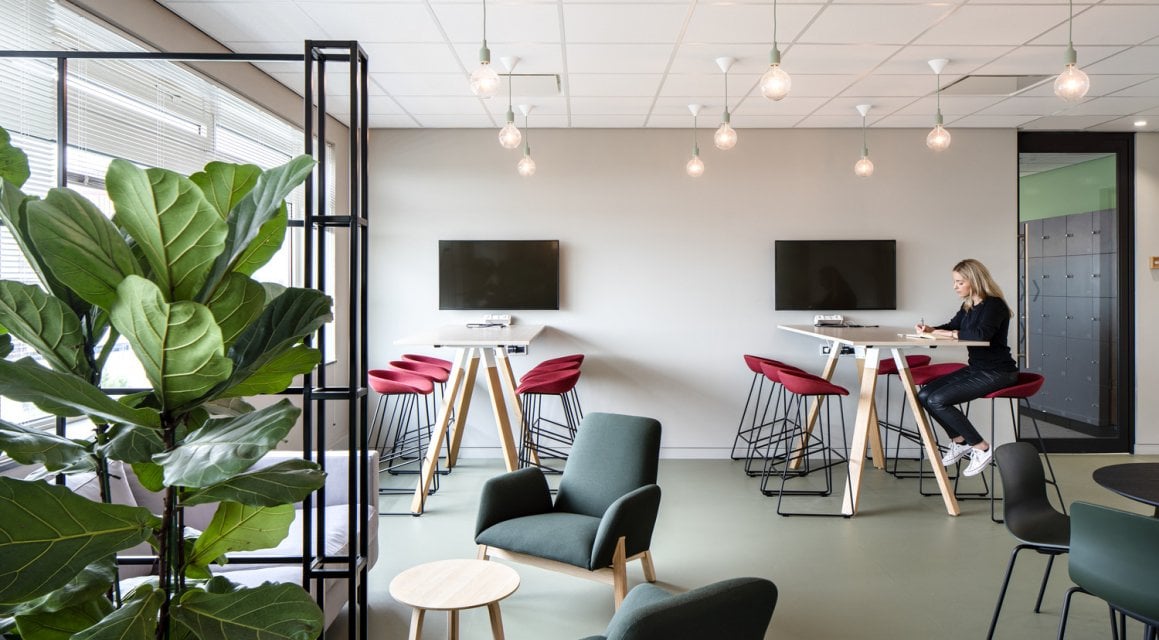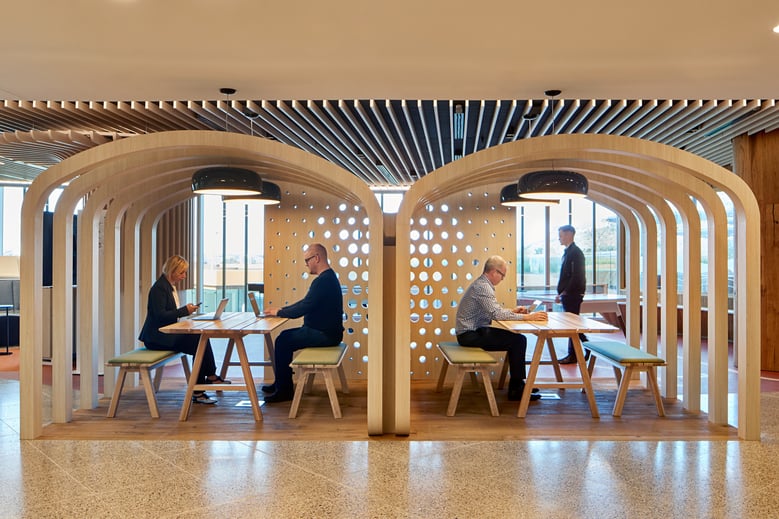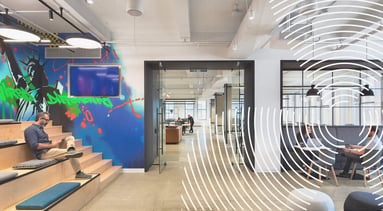
Significant changes are afoot. Executives are coming out into the open plan; the PC on the credenza may now be an iPad in the hand. Tasks may be apportioned to a human – or to AI. A new generation is coming in with different skills, characteristics and expectations. Against this unsettled backdrop, businesses may struggle to gauge who and how to recruit.
More than ever, businesses must ensure competitiveness, develop resilience against economic and market shocks, and navigate uncharted waters while ensuring safe passage into the future. To do this, they must attract talented people across both existing and emerging disciplines. Rethinking the workplace, and how and where work is done, can be the key to attracting and retaining great people.
For example, a fantastic workplace can be hugely motivational. Amenities designed to make life easier are increasingly in demand, especially if employees can avoid having to leave work to run errands, or stop off on the way home. These might include on-site fitness facilities; diverse catering options; services like dry-cleaning, a concierge, an ATM, shopping, childcare and even healthcare. Strong CSR and sustainability programmes, and support for different ethnicities and sexual identities, will be important to many. Internal and external aesthetics will count, as will location – whether sophisticated city centre or peaceful lakeside.
A destination workplace will also live and breathe the brand, cementing the brand culture and building employee, client and community engagement. When done creatively and with commitment, it becomes a real talking point.

Flexibility will be key
The workplace has historically been male-dominated and largely conservative, with employees putting in many years with the same company. Today, almost everything in that last sentence has changed.
More parents are returning to the workforce – not just women, but men who took a career break or extended paternity leave and now want a new, more libertarian way of working. Parents need flexible hours, optional places to work (for easier school drop-offs and shorter commutes), and family-focused amenities at the office. Those without young children may also want a better work/life balance; they might be caring for ageing parents, or wish to spend time with grandchildren.
More and more people change jobs regularly, so retention can be a real issue. Millennials have high expectations, and will move to ensure they’re met: 93% of Millennials also left their employer when they last changed role, and 69% of them would trade other benefits for a better workplacei.
“Flexible working was the highest ranked benefit in the Hays Salary & Recruiting Trends 2017 guide… 84% [of employees] state that they always or sometimes take an organisation’s flexible working policies into consideration when assessing a potential new employerii.”
Businesses will increasingly hire into entirely new roles. LinkedIn’s 2018 Emerging Jobs Report mentions relationship consultants, data scientists, and AI and blockchain specialists. Such people will be in high demand, able to pick and choose their workplace and rewards.
All the more reason for companies to play close attention to providing a human-centric workplace, attuned to people’s goals for their personal lives as well as their careers – part of a holistic package designed to attract and retain top talent across the organisation.


